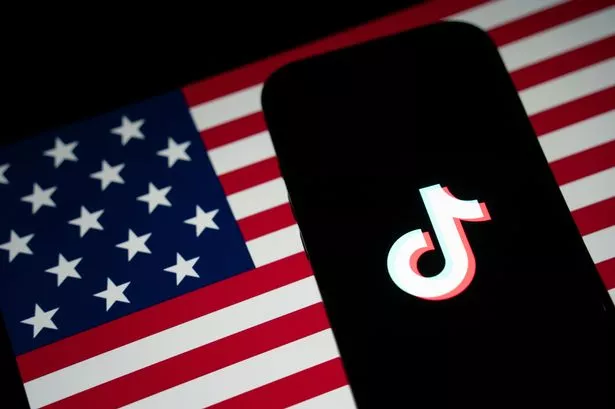The clash between TikTok and the U.S. government centers on national security and data privacy concerns tied to its Chinese parent company, ByteDance. TikTok, with around 170 million American users, faces a federal mandate under the Protecting Americans from Foreign Adversary Controlled Applications Act (PAFACA), signed April 24, 2024, requiring it to divest its U.S. operations or face a nationwide ban effective January 19, 2025. The Supreme Court upheld PAFACA in TikTok v. Garland on January 17, 2025, finding it constitutional and not in violation of First Amendment rights.
However, enforcement has been delayed: President Trump, upon re‐taking office January 20, 2025, issued multiple executive orders extending the divest‐or‐ban deadline by successive 75‑day periods—first to April 5, then June 19, and most recently to September 17, 2025. Meanwhile, ByteDance has been quietly developing a U.S.‑only version of TikTok (internally “M2”), with separate infrastructure and an American data repository, aiming for a September 5 launch to comply with legislative demands.
This standoff also underscores broader concerns: U.S. lawmakers, particularly from the national security side, argue the Chinese state could potentially access U.S. user data, while civil liberties advocates claim the policy disproportionately targets one platform and that comprehensive federal privacy legislation would be a far more equitable response.
Analysis
The TikTok controversy exemplifies the tension between national security prerogatives, data sovereignty, and democratic values. TikTok’s audience skews young, with the platform playing a growing role in cultural and political discourse—from pro-Palestine hashtags to election-related content. For many, TikTok symbolizes one of the last grassroots channels not dominated by older media institutions or big tech.
Proponents of the ban, primarily Republicans, assert that ByteDance could be compelled by Beijing to hand over U.S. user data or manipulate content to serve China’s interests. Despite TikTok’s repeated assurances—including storing American data in U.S. and Singaporean servers, and separating its operations from Beijing oversight—skepticism remains.
Legal developments have taken center stage. Congress passed PAFACA with significant bipartisan support, reflecting bipartisan anxiety over Chinese tech. TikTok challenged the law through judicial channels, but the D.C. Circuit and the Supreme Court affirmed its constitutionality, prioritizing national security concerns over free speech arguments.
Yet enforcement has been indefinitely postponed by executive decree—raising alarm about the erosion of Congressional authority and rule of law. Brookings Institution notes this precedent grants extraordinary discretion to the president, permitting the selective enforcement of laws irrespective of legislative or judicial mandates.
From the platform’s perspective, Project M2 and the U.S.-only TikTok app may be a technically viable workaround: American users, data, and algorithms will be separated from ByteDance’s global systems. But China’s possible resistance complicates matters—and leaves open questions about whether true independence has been achieved.
Meanwhile, critics argue this unilateral focus on TikTok is misguided. Al Jazeera quoted experts stating that banning TikTok won’t shield Americans from data harvesting by other platforms. True protection requires robust federal privacy legislation enforcing standards across all platforms.
The political dimensions can’t be ignored. Many on the left see TikTok as a vital platform for youth expression and alternative media—not a national security threat. The current campaign to block it appears, in part, as part of a “culture war” narrative: if enforced, the ban would effectively censor millions of voices and deepen distrust among younger Americans.
However, it is worth noting that European countries and EU institutions have banned TikTok on government-issued devices due to cybersecurity and data privacy concerns. These include France, Belgium, the Netherlands, Denmark, Ireland, and others. The European Commission, Parliament, and Council have also enforced similar bans for staff, and the EU has launched formal proceedings against TikTok under the Digital Services Act. A broader restriction hasn’t been ruled out.
Engagement Resources
- Center for Digital Democracy (https://www.democraticmedia.org): Advocates for strong privacy protections and transparency in digital platforms, and highlights the democratic value of community‐led media.
- Electronic Frontier Foundation (https://www.eff.org): Defends civil liberties in the digital age, including opposing blanket bans that undermine freedom of expression.
- American Civil Liberties Union (https://www.aclu.org): Offers legal research and action on First Amendment rights in tech policy, including active challenges to executive overreach.
- Future of Privacy Forum (https://fpf.org): Non‐partisan think tank promoting balanced privacy standards and federal data protection laws that do not single out specific tech companies.
- Tech Inquiry Project (https://techinquiry.org): Focuses on social justice in technology, supporting equitable reforms that center marginalized users rather than coercive bans.
- U.S. Public Interest Research Group (https://uspirg.org): Mobilizes grassroots advocacy for comprehensive privacy legislation in Congress to protect consumers broadly.

